Kitano Tenmangu Shrine, Kyoto - Offer A Prayer To The God Of Scholars

The god of scholars is enshrined at Kitano Tenmangu. It is said that he will answer the prayers of students and job seekers.
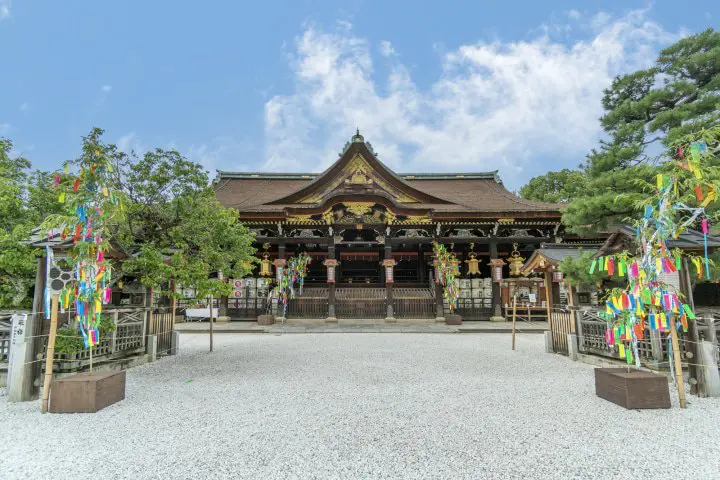
Japan has a multitude of shrines where various gods are worshiped, and each enshrined deity answers different kinds of prayers. If you plan on paying homage at a shrine, you will have a much better time by doing a little advance research to find out what kind of prayers are heard by the god of that particular shrine.
Within that multitude, the Tenmangu shrines are famous throughout Japan for housing "the patron deity of scholars". Tenmangu is the general term for shrines dedicated to Sugawara no Michizane, a prominent Heian period aristocrat and scholar.
Kyoto is home to the Kitano Tenmangu shrine, which rivals Fukuoka’s Daizaifu Temmangu shrine in popularity and lineage; its history spans over a thousand years!
Today we will tell you a bit more about Kitano Tenmangu, home of the god of scholars and a popular Kyoto destination.
Read also: Japanese Encyclopedia: Tenmangu
A Shrine to Appease the Spirit of Michizane
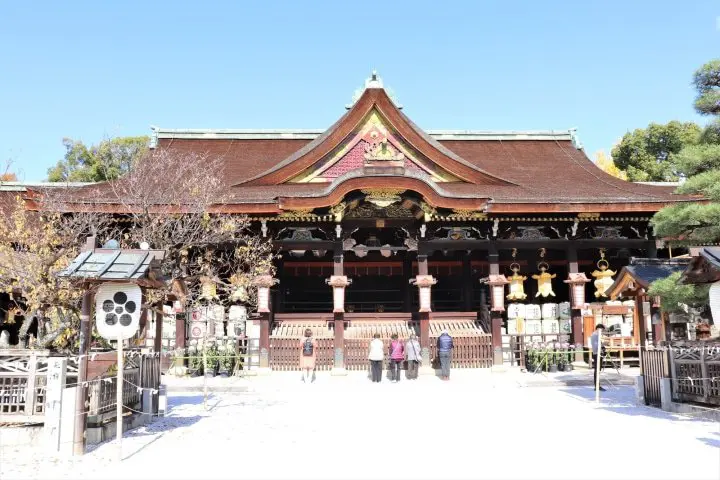
Kitano Tenmangu Shrine was originally constructed to calm the spirit of Michizane. A prominent Kyoto aristocrat in his day, he was falsely charged with a crime and banished to Dazaifu (present-day Dazaifu city in Fukuoka prefecture), where he died in 903.
Following his death, the capital (present-day Kyoto city) was struck by several natural disasters. Fearing that the disasters were “a curse from Michizane,” the people of Kyoto built a shrine to house his spirit, hoping to appease the ghost.
Before long, people’s devotion to the spirit of Michizane rose to the point that the emperor of the time, Emperor Ichijo, awarded Michizane the godly title of Kitano Tenmangu Tenjin. Because of this imperial designation, people still refer to Michizane as “Tenjin” or “Tenjin-sama.”
From a young age Michizane was a diligent student. As a result, worshipers believe that Tenjin is the god of scholars. In modern times, he is regarded as the god of entrance examinations, and there is no end to the crowds of believers who travel to his shrines from far away.
Kitano Tenmangu was built in 1607, and its sanctuary, paved stone path and worship hall are national treasures. The central gate, cloisters, back gate latticework fences, and eastern gate have been designated as important cultural properties.
Next we will introduce the highlights of the shrine.
Read also: Visit Tokyo’s Yushima Tenjin, the Shrine of Scholars
Highlight 1: The Statue of the Reclining Cow
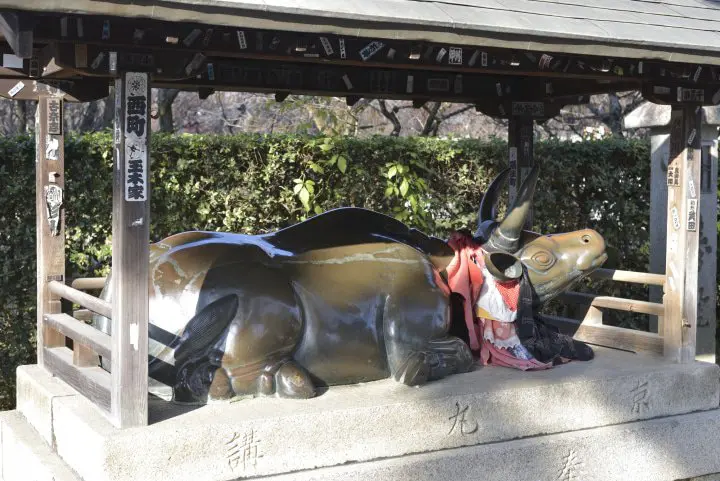
An image of a cow sits on the shrine premises. It is known as the statue of the reclining cow. The statue is indispensable to the Tenmangu shrine.
Many legends about the bond between Michizane and cows still remain: one such story holds that the cows wept as they bade him farewell when he was banished to Dazaifu. As a result, cows came to be thought of as the messengers of Tenjin.
Cow statues can be found at almost all Tenmangu shrines, and it is said that rubbing the head of one of these statues will grant wisdom.
At Kitano Tenmangu, you can see many cow statues, not just one. All of the statues have their own expressions, sizes, and feel different to the touch; why not try finding one to your liking?
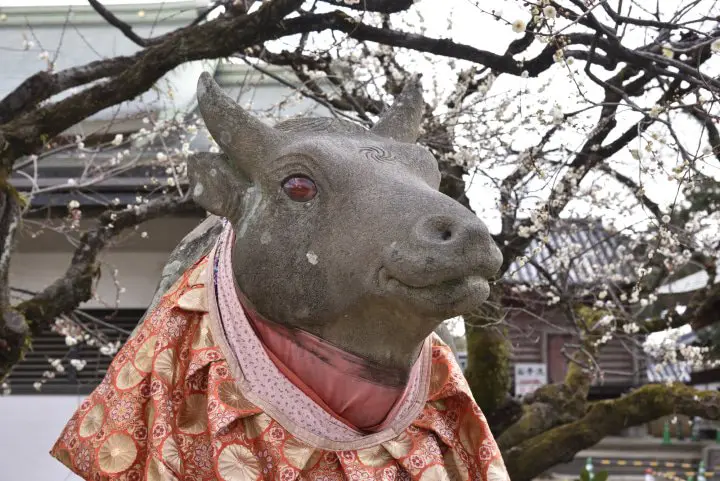
The effects are not limited to the head of the cow alone. It’s also said that if you rub an injured body part, then rub the same part on the cow statue, your condition will improve.
Highlight 2: Plum Flowers
Michizane is said to have loved plum flowers, which are a charming addition to Tenmangu shrine premises. Of course, plenty of plum trees grow at Kitano Tenmangu.
Said to be one of the top places to see plum flowers in all of Japan, the compound contains 1500 plum trees, comprising about 50 different varieties.
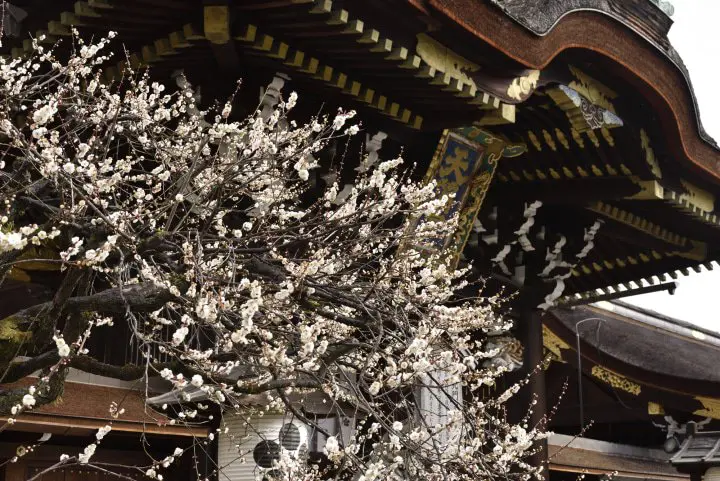
The best time to see the flowers is from early January to late March. In addition, a festival centered around plum flowers is held on February 25th.
Highlight 3: Charms, Omikuji Fortunes and Ema
No Japanese shrine is complete without charms and omikuji fortune papers. Kitano Tenmangu is no exception, with plenty of divine items related to studying.
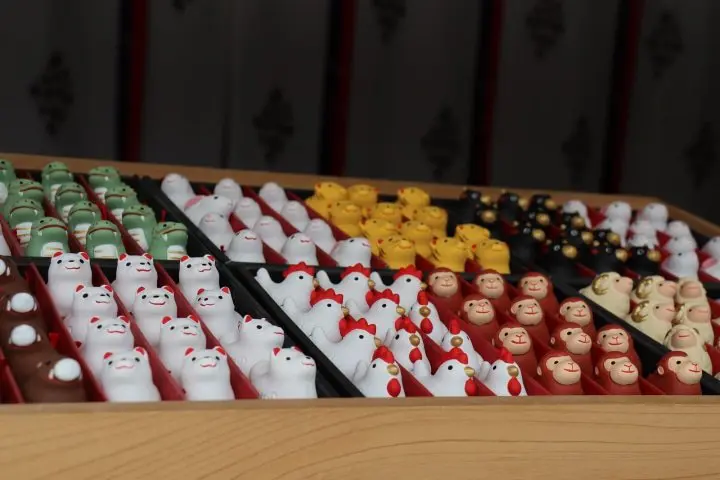
Ema are also an integral part of the shrine-going experience. The dreams written on them are from the many student visitors who are taking entrance exams, hunting for jobs or waiting for tests.
On this day, many students wished for successful test results.
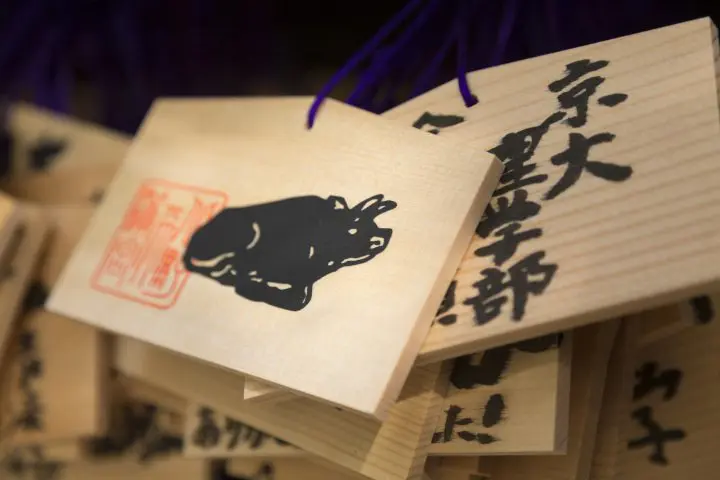
In Conclusion
At Kitano Tenmangu Shrine, you can get in touch with authentic Japanese history.
If you’re in Kyoto and you have a big test coming up, how about stopping by?
Information
Kitano Temmangu Shrine
Address: Kyoto, Kamigyo, Bakuro, Kitano Temmangu
Shrine Hours:
[Summer] 05:00 - 18:00
[Winter] 05:00 - 17:30
[Reception hours] 09:00 - 17:00 (there is all-hours access to the shrine)
Fixed holidays: None
Wi-Fi: None
Credit Cards: Cash only
Other Language Support: English
Other Language Pamphlets: None
Nearest Station: Hakubaicho Station on the Keifuku Rail
Access: 5 minute walk from Hakubaicho Station
Religion: Shinto
Phone number: 075-461-0005
Homepage: Kitano Tenmangu
食べることとアニメが大好きなオタク大学生。日本の魅力を関西から発信していきます!






































![[During Your Kumano Trip] Cape Shionomisaki Tourist Tower](https://resources.matcha-jp.com/resize/720x2000/2025/11/05-249097.webp)
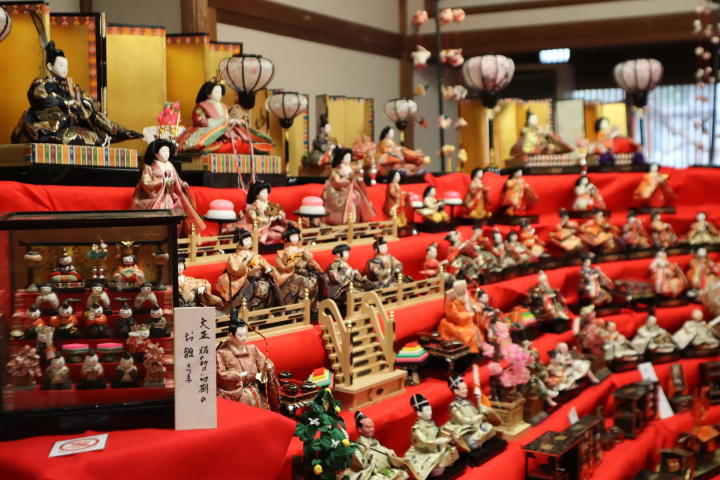
![[Kagoshima] Enjoy Minamisatsuma City to the Fullest! A Guide to the Scenic Beauty and Culture of Five Areas](https://resources.matcha-jp.com/resize/720x2000/2026/02/15-258755.webp)
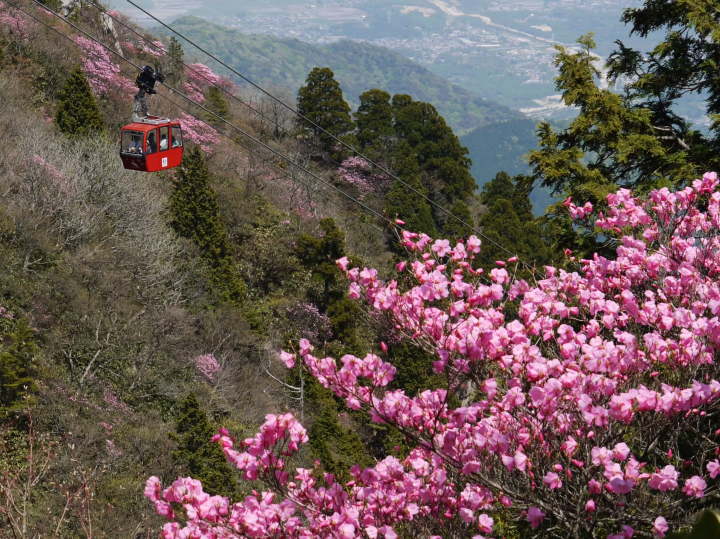
![[Yufuin]Yufuin in 100 Minutes: Quick Access Guide](https://resources.matcha-jp.com/resize/720x2000/2026/02/15-258738.webp)